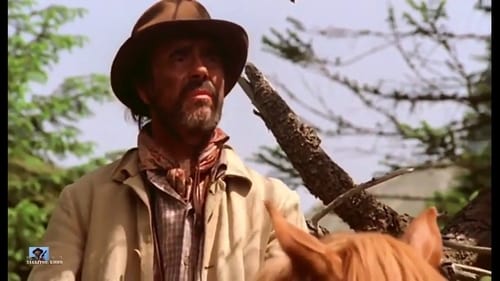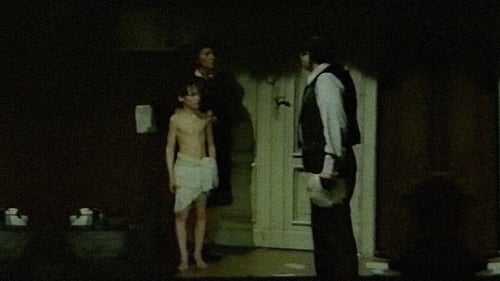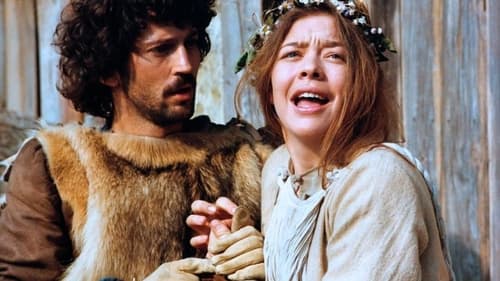
Cinematography

Cinematography

Cinematography
The law student Caroline and the assistant professor Tom are husband and wife, but they keep their marriage a secret. While Caroline is afraid of annoying her mother Hella who ever since her divorce twenty years ago distrusts men in general, Tom dreads the criticism of his professor, a family law specialist who objects to the concept of marriage. By chance, Caroline gets hold of some juicy information: Her mother and the professor used to be a couple and she is their child. With almost missionary zeal she addresses herself to the task of convincing the two grown-ups to get back together. In the process, however, she steers both her academic studies and her own marriage into a crisis.

Cinematography
The nurses and friends Anna and Annette grow desperate over men and love. At the hospital, Anna has fallen in love with Markus, whom she lovingly calls "moose", but they only meet twice a year, when Markus has time for her. In the meantime, she keeps afloat with flights of fancy. Meanwhile, Annette clings to the painter Ludwig who cannot stand such a close relationship. Through Annette and Ludwig, Anna meets an attractive married man but her high spirits do not last long.

Cinematography
"Je t'aime, Chérie." These three words and a Bulgarian volleyball jersey is all Martina, a young working woman from Berlin, is left with after a night at the beach spent with a mysterious lover. But then she learns that she is pregnant, and once the baby is born, she starts for Bulgaria to search for her son’s father. The orderly yet diffident Thomas, an employee of the embassy of the GDR, joins her in order to provide diplomatic support. The quest, however, turns out to be rather difficult.

Cinematography
A Western set in the US around the turn of the century. Atkins leaves the city to return to the valley where he formerly lived. There he meets Native Americans who learn to trust him. They ask Atkins to buy weapons for them. On his journey Atkins meets Morris, whose interest in mineral resources puts Atkins loyalty to the Native Americans to the test.

Director of Photography
Film by Evelyn Schmidt.

Cinematography
Things are not going well for Klaus Wensloff. It is the last year of World War II. At school the boy hears Nazi propaganda, while at home his mother tells him Bible stories and his father explain the world revolution.

Director of Photography
On a forest road in the Brandenburg March, village teacher Potsch accidentally encounters the distinguished Professor Menzel, who got stuck there in his car. In the conversation that ensues, Menzel and Pötsch quickly discover that they both are great admirers of the early 19th-century writer Max von Schwedenow who was born in the area.

Cinematography
A life-threatening heart attack confines Richard Roth to the hospital bed. There, Richard, who is in his late fifties, asks himself what will remain of him and his life. What happened to his four daughters? Do they take after him? How have they developed? His youngest daughter Nanny, who is still living with her father, gets her three other siblings to Weimar to visit their father.

Director of Photography

Cinematography

Director of Photography
Sabine Wulff is almost 18 when she is released from the juvenile detention center. She doesn't want to return to her unsupportive parents or to her former boyfriend Jimmy, who got her into trouble by persuading her to steal cigarettes. She instead chooses to begin an honest life by getting a job and renting her own room.

Director of Photography
Switzerland 1523. The mercenary Hansli Gyr returns with his soldiers from Italy to his home in the Oberland. They have fought for the Pope and now find a religious upheaval in Switzerland.

Cinematography
Film by Georg F. Mielke.

Cinematography

Cinematography

Director of Photography

Director of Photography
Josef Neumann has always been an outsider to society, and at the age of 30, he has already lived an adventurous life when he comes to the GDR. He was raised as a foundling by nuns, made an apprenticeship as a construction worker, went to the Foreign Legion, and was a seaman and a tramp. Now, he is working at the Warnow shipyard. Brigadier Bruno has a lot of sympathy and patience with the unconventional Josef, but Josef cannot fall in line with strict orders and again and again acts against the rules.

Director of Photography

Director of Photography
GDR border guard Gunter Rist is a young man from humble homes. During a swimming competition he meets Penny, a professor’s daughter from a good family, and they fall in love. However, their different social backgrounds get in the way of their happiness: Penny’s friends make it obvious that they are not willing to accept Gunter in their group. Although Penny takes Gunter’s side, she doubts if love can overcome all obstacles. In this state, she falls for the advances of her ex-boyfriend Bob and joins him on vacation. In the meantime, Gunter has an accident and is hospitalized. In the hospital, he meets the nurse Li who seems to be perfect for him.

Cinematography
Horst, a young boy from Berlin, spends his holidays with the "Pirates" at Horse Island. The teen gang is led by Horst′s friend Benno. Soon, Horst realizes that the pirates create a lot of nuisance. Gudrun, whom Horst meets on his way to the village, tells him that she has been attacked and injured by the pirates when she tried to observe a rare cormorant. Gudrun and Horst become friends. Since Benno is less than thrilled about this friendship, he plots a second attack on the girl.

Director of Photography
Böttcher made his graduation film about young people who had become delinquent in a youth work yard in Thuringia. Already here a striking feature of his later films becomes apparent: Jürgen Böttcher gives his protagonists a lot of space; he approaches them without prejudice, empathetically and carefully. In addition, his curiosity can be felt in the life situations and stories of his characters.












